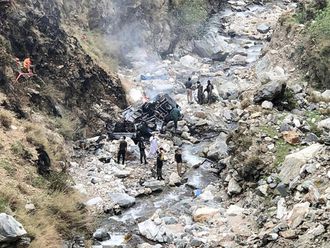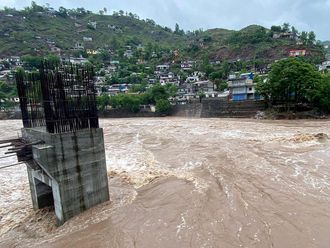Islamabad: For a common Pakistani, the Eid Al Adha this year lacks almost everything for which it is known for across the Muslim world.
The animals for slaughter are three hundred times more expensive than they were last year. Inflation is soaring to all-time high as the rupee plunges to the record low against dollar ($1=86 rupees) in the open market.
"The most recent attack has been outrageous hike in petroleum prices while they continue to slide across the globe," says Anisa Khan, a school-teacher who would not travel to her in-laws' home in central Punjab town of Gujranwala.
Early November, the government announced an increase of seven to eight rupees in petroleum product, leading to unreasonable increase in fares across the country.
For the meet-eating Pakistani nation, the Eid Al Adha was feeding festival. Not this time as goats, sheep and cow are not only lesser in number due to floods three months ago but also inflated prices owing to a host of factors including inflation.
Family
"In the last 12 years of my married life, never did I miss an Eid without sacrificing an animal and if I continue to the practice, there would be nothing left to feed the family for the remaining two weeks of the month," says Rashad Rao, a mid-career government servant in Islamabad.
Besides floods across Pakistan, livestock smuggling to Afghanistan has been an added adverse factor in soaring prices ahead of Eid Al Adha. Sources in the Frontier Constabulary told Gulf News that on average 3,000 to 5,000 animals are smuggled to Afghanistan from known route in Khyber Pakhtunkhawa where meat is a staple food consumed from breakfast to supper. Various estimates put at least a similar figure for smuggled animals from Chaman and other areas of the Balochistan region into Afghanistan.
However, well-to-do and concerned Pakistanis are continuing their tradition of slaughtering animals on the Eid in flood-affected areas across Northern Area, Kashmir and four provinces.
The Turkish NGOs are taking the lead from the Muslim world by slaughtering over 4,000 animals in flood-stricken areas where 700,000 people brave winter in tents or make-shift homes.












